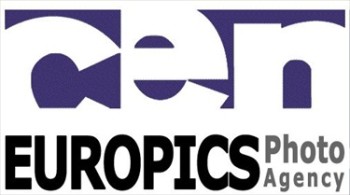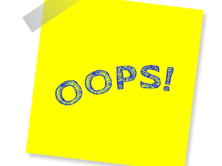
Last month, Central European News sent an invoice to HuffPost. (Credit: Central European News)
Huffington Post paid news agency Central European News last month after re-reporting two CEN stories, Press Gazette reported.
Central European News billed AOL/Huffington Post $160 for the two stories. According to Press Gazette, the invoice called for “$80 for using each story without credit, and $80 for using them without consent.”
CEN’s founder and owner, Michael Leidig, called for “other freelancers and agencies to copy CEN’s lead and also send the Huffington Post invoices,” according to Press Gazette. He criticized the Huffington Post for re-writing “the hard work of the real news community” and commented that “They can huff and puff all they like as long as they pay – maybe then they’ll appreciate fully the tough economic world we all have to live in.”
According to Press Gazette, Leidig’s attorney Bill Lister, referenced the UK court case against aggregator Meltwater. (See our August story here).
“Even if the story was altered, but it could still be proved that Huffington Post could only have got the story from the original CEN source, he argued, then that also constituted a breach of copyright,” Lister reportedly told Press Gazette.
AOL/Huffington Post’s Mario Ruiz told Press Gazette that it paid the invoices because of a “paperwork error, not a change in policy,” according to Press Gazettte. He claimed that the invoices were paid because a “staff employee” mistook the invoices as a photo licensing fee and that the company won’t pay “invoices including this language” again. He defended the company’s aggregation and understanding of copyright.
iMediaEthics wrote to Central European News for more information about this invoice and situation. CEO Michael Leidig responded. Leidig explained to iMediaEthics that “The issue with the Huffington Post was never about links – it was about being paid for what we do.”
“I have an office here in Vienna and regional offices in several countries around the world mostly in Eastern Europe. I pay full-time journalists to provide me with material – this material is a product of calls and research and of course journalistic training which has to be paid for.”
According to Leidig, Central News Agency has business arrangements with other news outlets including the Times, the Telegraph, and the BBC. Central News Agency is able to pursue longer journalistic projects often because of the money earned from news outlets for its “tabloid stories,” he wrote.
Leidig argued that “because within minutes of a story that I filed being published on the Daily Mail it is been lifted and republished by the likes of the Huffington Post there is little value anymore on what I provide.” He added that the stories in question “were not exactly earth shattering or of major world importance – but it’s this sort of lighter news that our agency does that allows us to fund the more serious stuff.”
Leidig disputed Huffington Post’s Ruiz’s claim that the invoice was accidentally mistaken for a photo licensing fee. According to Leidig, the invoice “stated very clearly exactly what was the reason for the invoice.” He sent iMediaEthics one of the invoices but requested us not to publish the invoice. According to Leidig, the two invoices are the same except for the story being billed. The Aug. 2 invoice was e-mailed to an AOL photo accounting e-mail address. The invoice states that it is asking for “USD 40.00 for using our text without consent” and “USD 40.00 for failing to credit Central European News on the Daily Mail story.”
Leidig wrote that while he hadn’t sent an invoice for this type of issue to the Huffington Post before, “it won’t be the last.” Leidig added that his issue in this situation is that the Huffington Post didn’t add anything to the story. He wrote:
“I have no objection to somebody using my stories as a basis for their own stories where they take the effort to go back to the original source and come up with something fresh and new. What I object to is simply taking my material word for word – liquidising it and using almost all of it with nothing added that is fresh.”
He also called for Huffington Post to “invest in their own stories and not simply steal the hard work of others.”
Leidig also pointed to Web Pro News’s article on the issue, which he commented that “I think they managed to completely miss the point.” Leidig questioned why his comment wasn’t included in the story, telling iMediaEthics that:
“Unlike you – the author of this report did not make any attempt to contact me and although I wrote to the organisation offering to make a comment they ignored me.”
iMediaEthics wrote to the Huffington Post’s Mario Ruiz asking if the Huffington Post would be seeking a refund for the invoice since he said the company paid it in error, asking how the invoice was mistaken for a photo licensing fee since it clearly stated it was for content, and if Huffington Post had any further comment on the incident or issue of invoices. Ruiz told iMediaEthics that “we explained what happened in the story and we have no further comment.”





